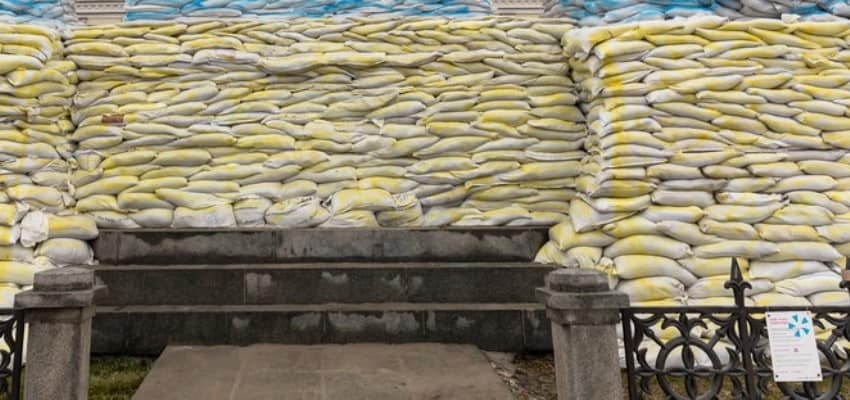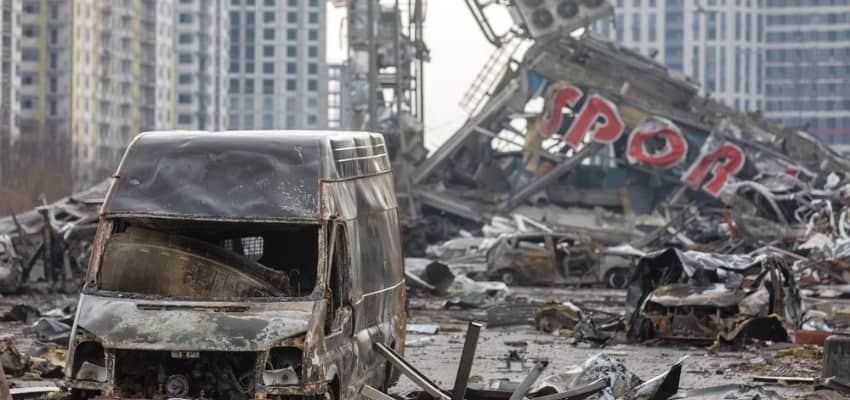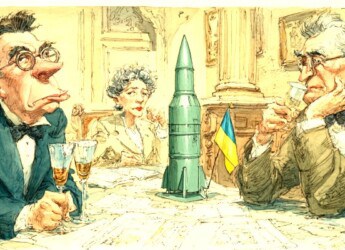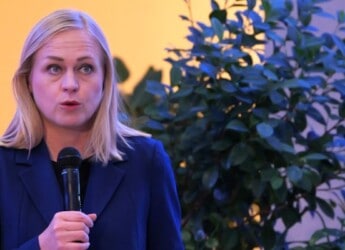|
|
Content Assessment: Lost Orcs? Ukraine Conflict Assessments in Maps (April 1 – 3, 2022)
Information - 97%
Insight - 96%
Relevance - 94%
Objectivity - 92%
Authority - 93%
94%
Excellent
A short percentage-based assessment of the qualitative benefit of the post highlighting the recent Ukraine conflict assessments in maps from the Institute for the Study of War.
Editor’s Note: One of the most accurate and detailed sources for ongoing updates on the Ukraine crisis is the Ukraine Conflict Update from the Institute for the Study of War. The Institute for the Study of War (ISW) is a 501(c)(3) organization and produces strictly non-partisan, non-ideological, fact-based research. ISW seeks to promote an informed understanding of war and military affairs through comprehensive, independent, and accessible open-source research and analysis. ISW’s research is made available to the general public, military practitioners, policymakers, and media members. Providing a daily synthesis of key events related to the Russian aggression against Ukraine, ISW updates may benefit cybersecurity, information governance, and legal discovery professionals as they follow the business, information technology, and legal trends and trajectories impacted by and stemming from the current Ukraine conflict.
Assessment and Maps*
Ukraine Conflict Assessments – An Overview in Maps
- Institute for the Study of War (ISW), Russia Team
- Critical Threats Project (CTP), American Enterprise Institute
General Assessment Background Info
- ISW systematically publishes Russian campaign assessments that include maps highlighting the assessed control of terrain in Ukraine and main Russian maneuver axes.
- These maps augment daily synthetic products that cover key events related to renewed Russian aggression against Ukraine.
Russian Offensive Campaign Assessment on April 3, 2022
Extract (Frederick W. Kagan, George Barros, and Karolina Hird)
Ukraine has won the Battle of Kyiv. Russian forces are completing their withdrawal, but not in good order. Ukrainian forces are continuing to clear Kyiv Oblast of isolated Russian troops left behind in the retreat, which some Ukrainian officials describe as “lost orcs.” Russian forces had attempted to conduct an orderly retreat from their positions around Kyiv with designated covering forces supported by artillery and mines to allow the main body to withdraw. The main body of Russian troops has withdrawn from the west bank of the Dnipro and is completing its withdrawal from the east bank, but the retrograde has been sufficiently disorderly that some Russian troops were left behind.
The war is far from over and could still turn Russia’s way if the Russian military can launch a successful operation in eastern Ukraine. The current line of Russian occupation in southern and eastern Ukraine is still a significant gain in Russian-controlled territory since the start of the war. If a ceasefire or peace agreement freezes a line like the current front-line trace, Russia will be able to exert much greater pressure on Ukraine than it did before the invasion and may over time reassemble a more effective invasion force. Ukraine’s victory in the Battle of Kyiv is thus significant but not decisive.
Key Takeaways
- Ukraine has won the Battle of Kyiv, and Russian forces are completing their withdrawals from both the east and the west banks of the Dnipro in disorder.
- Russian forces retreating from around Kyiv will likely need considerable time before they can return to combat.
- Incidents of refusals of orders to engage in combat operations among Russian units continue and may lead to the redeployment of two BTGs that had arrived near Donbas within the last few days to their home stations in South Ossetia.
- The continued existence of an independent Ukrainian state with its capital in Kyiv is no longer in question at this time, although much fighting remains and the war could still turn Russia’s way.
Ukraine Conflict Maps - 040122-04032
Read the latest Ukraine Conflict updates from the Institute for the Study of War
* Shared with direct express permission from the Institute for the Study of War (ISW).
About the Institute for the Study of War Research Methodology
ISW’s research methodology relies on both primary and secondary sources, enabling researchers to develop a comprehensive understanding of the situation on the ground. In order to analyze military and political developments in any given area, ISW’s research analysts must wholly understand the systems of enemy and friendly forces. They must also understand the population demographics, physical terrain, politics, and history of that area. This lays the analytical foundation for understanding the reasons for particular developments and fulfilling their assigned research objectives. ISW analysts also spend time in places like Iraq, Afghanistan, and elsewhere in order to gain a better understanding of the security and political situation and to evaluate the implementation of current strategies and policies. Our researchers compile data and analyze trends, producing a granular analysis of developments in areas of research, producing an accurate, high-resolution, timely, and thorough picture of the situation. ISW’s research methodology guarantees its success and commitment to improving the nation’s ability to execute military operations, achieve strategic objectives, and respond to emerging problems that may require the use of American military power.
About the Institute for the Study of War
The Institute for the Study of War advances an informed understanding of military affairs through reliable research, trusted analysis, and innovative education. We are committed to improving the nation’s ability to execute military operations and respond to emerging threats in order to achieve U.S. strategic objectives. ISW is a non-partisan, non-profit, public policy research organization. Learn more, get involved, and contribute today.
Additional Reading
- [Annual Update] International Cyber Law in Practice: Interactive Toolkit
- Data Embassies: Sovereignty, Security, and Continuity for Nation-States
Source: ComplexDiscovery


























